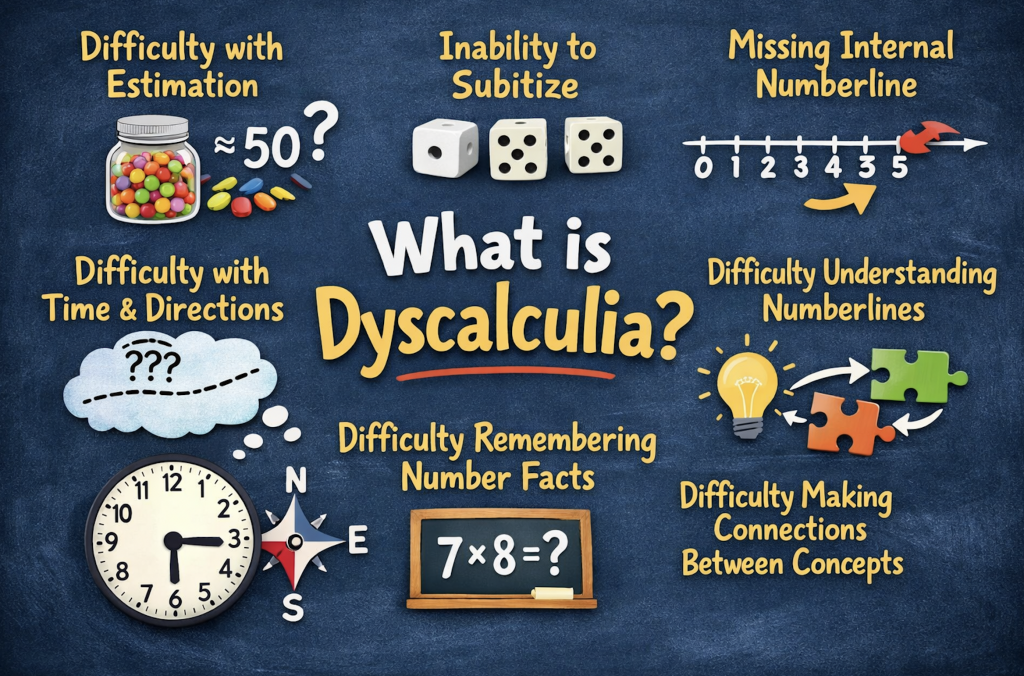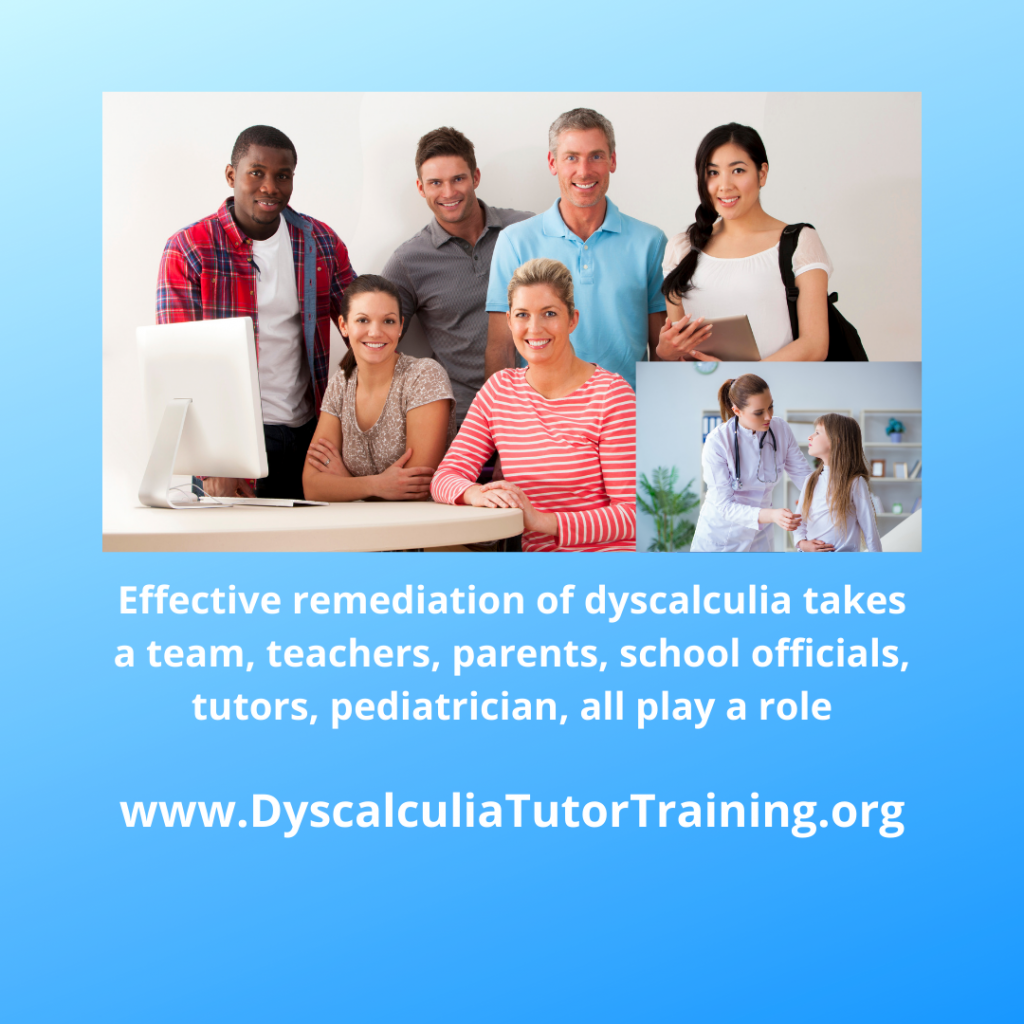Dyscalculia is about how your brain is wired to process and understand numbers. Maths anxiety is about the feeling or reaction you have when encountering maths. It is an emotional response that can block the demonstration of knowledge you have previously learnt. With maths anxiety being an emotional response, it means mathematical performance varies dramatically depending on stress levels. Individuals may solve problems easily when in casual conversation, but freeze when it’s called a test or when they feel they are being watched.
For people with dyscalculia, the struggles are consistent across situations and environments, and will often be apparent in number-related activities that aren’t typically thought of as maths – telling the time, remembering PIN numbers or estimating reasonable prices.
Maths anxiety can develop at any point in an individual’s life, often relating to experiences such as a harsh teacher, public failure, timed test or comparison to peers. Dyscalculia presents from early childhood, though it is often underdiagnosed, particularly as it usually co-occurs with other learning differences or needs like ADHD, dyslexia, developmental language disorder or developmental coordination disorder.
Read the full article HERE
- Master Arithmetic with Tools at Home https://PracticalMathHelp.com
- Dyscalculia news and podcasts https://DyscalculiaHeadlines.com
- Dyscalculia for Dyslexia tutors transition training https://dys4dys.org
- Dyscalculia Services https://DyscalculiaServices.com
- Dyscalculia Awareness Training https://DyscalculiaAware.org
- Math Assessment Reasoning and Strategy https://MathStrategy.org
- Help you child with math homework https://MomsTeachMath.com
- Math and Dyscalculia Screening test https://DyscalculiaTesting.com
- Dyscalculia Screener https://DyscalculiaScreener.org
- Adult Dyscalculia https://AdultDyscalculia.org
- Become a Dyscalculia Tutor https://DyscalculiaTutorTraining.org
- Ask a question at https://Dyscalculia.ai


